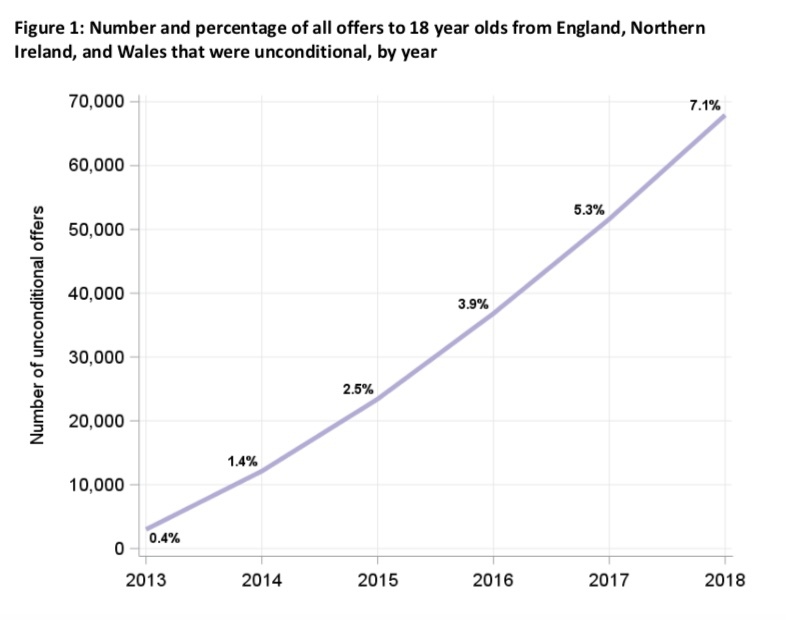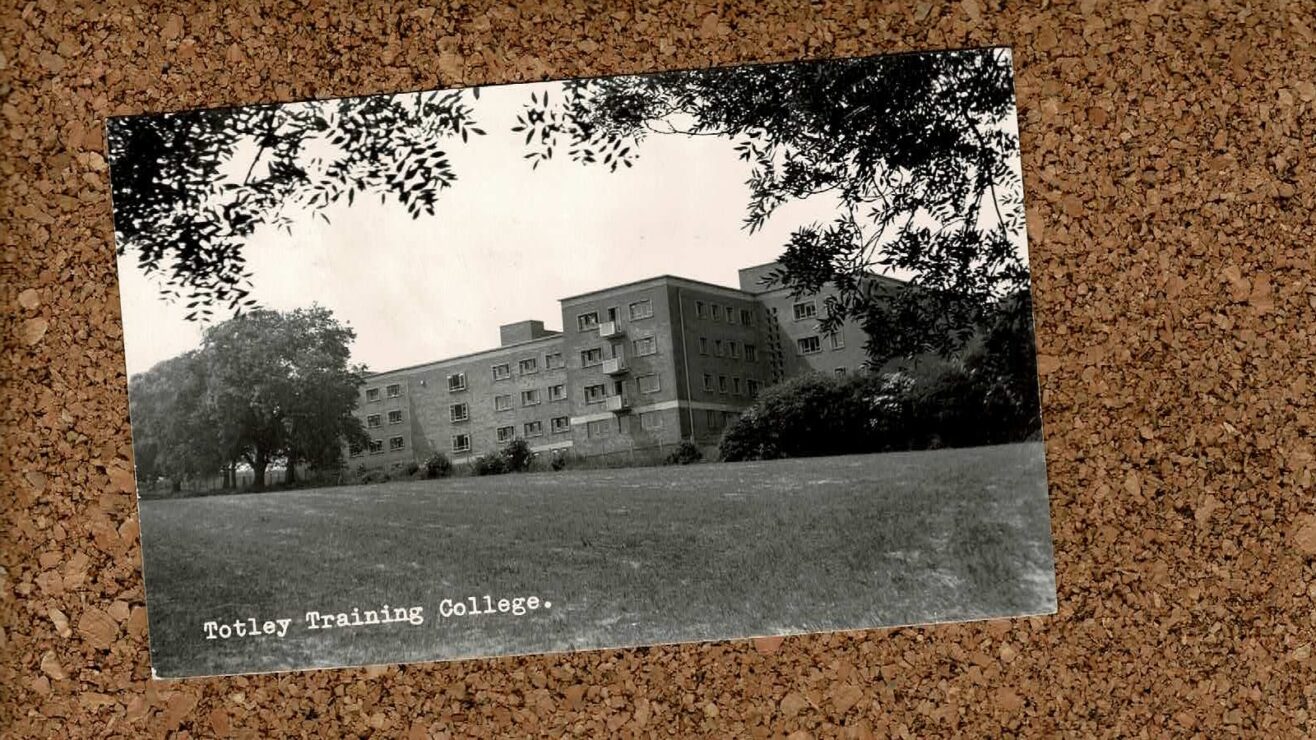The dust has now settled on this year’s confirmation and clearing round and it’s time to reflect (again) on the arrangements we have in UK higher education (although things do operate a bit differently in Scotland) for recruiting, selecting and admitting students to university. I’ve written on this a few times before, most recently here, about how we really do need a fresh approach.
Recently Sir John Dunford (formerly a secondary headteacher, general secretary of the Association of School and College Leaders and National Pupil Premium Champion) wrote a powerful piece in TES arguing for the need for Post-Qualification Admissions (PQA). He noted the previous attempts to introduce such rationality into the system including a Committee of Vice-Chancellors and Principals (CVCP) investigation in 1994, a call from a commission including the Secondary Heads Association and UCAS for a two stage process in 2004, the Schwartz review (also in 2004) and a UCAS-led consultation in 2011. Every one of these efforts failed because of objections raised from both the school and higher education sectors.
A global outlier
Earlier in the summer Graeme Atherton produced a report for UCU which looked at 29 other admissions systems around the world and offered the following key findings:
PQA is the global norm : England, Wales & Northern Ireland are real outliers
PQA works in larger systems
PQA supports “high performing education systems” : Nine of the 10 countries in the world with the best performing graduates have PQA.
PQA could enable more equitable access to HE : there is no evidence to suggest that PQA is hampering equitable access.
Atherton argues that PQA based process could “evolve into one that builds statutory support for learners to make HE choices, prepare for HE study and make HE decisions.” He envisages admissions as a three step process with applicant support embedded throughout:
STAGE 1: SUPPORTING HE CHOICE MAKING
At present many schools/colleges offer HE visits etc. at the end of year 12 to help students make HE choices, but they do not engage all year 12 students. As part of a new PQA package this offer could be formalised and enhanced via a National HE Choice Week in July of year 12/first year Level 3 course.
STAGE 2: SUPPORTING PREPARATION FOR HE SUCCESS
A key goal for the HE system is to improve student success amongst all groups of learners and in particular close gaps in student success by social background. Adjustments to the HE admissions timetable as a result of PQA could free up space to better prepare students for HE. Earlier examinations as part of PQA would allow the delivery of a HE preparation week in June/July of year 13. A week focusing on study skills, financial education and independent learning techniques would be a huge benefit in a new PQA system.
SUPPORTING HE DECISION MAKING
HEIs in England, Wales & Northern Ireland invest significant time and effort in competitive practices after A-Level results are released via clearing. PQA would allow this clearing phase to be re-purposed as an advice phase to ensure that students make the right choices for them after they receive their results.
Similar points are made by Dunford about the need for a period of preparation and helping students in finding information and providing decision support. He also argues for a broadly similar structured approach:
Space needs to be found for the applications and determination of places. Currently, A levels take place in June, with results in mid-August, and the university term starts at the end of September. These three elements of the admissions system – the schools and colleges, the awarding bodies and the universities – each needs to give a little in order to create space for a successful PQA system. A levels could be a week or two earlier, reducing teaching time by a small proportion, exams could be marked and results produced more quickly, and the start of the first year at university could be a week or two later.
The Ucas report in 2011 concluded that the system needed changing to PQA because many applicants were making choices about what and where to study before they were fully ready; the effect of predicted grades, insurance choices and clearing is a complex system that lacks transparency for many applicants and is inefficient and cumbersome for universities; and only the best-informed applicants and advisers are able to optimise Ucas applications, creating a divide between applicants who receive effective advice and those who do not.
Unconditional hate
There has been some rather extreme reaction to the growth in unconditional offers recently, not least because of a fear that they are encouraging students to ‘coast’, knowing they have the place in the bag, and therefore resulting in underperformance and poor preparation for university level study. See this recent Guardian report for example.
A recent UCAS assessment showed a pattern of students dropping grades as a result of unconditional offers – but the evidence from several universities making such offers I’m aware of is that this does not necessarily happen. However, now that so many unconditionals are being made then this is perhaps not always the case – lots of universities are now making such offers for fear of losing out to their competitors. Indeed they are behaving as you would expect them to do in a market, which is what the government has sought to create (despite the Minister apparently being rather unhappy about the consequences).

Every year there are new stories in the press about the creative approaches universities are taking to attracting students in the ever more competitive HE recruitment market place. Many of these are fairly standard approaches including guaranteed accommodation, merit scholarships, discounted gym fees, free iPads, football season tickets etc but every year new approaches are tried in order for institutions to make themselves stand out in this intensely competitive environment. Unconditional offers are arguably just another manifestation of this trend, but it’s not pretty out there.
The future is PQA
I wrote back in 2013 of concerns about admissions and my fear that the response to these challenges would lead to an “admissions wild west” with a complete free for all in terms of recruitment – and an “anything goes” approach to securing the best qualified students. If everyone chose to ignore the rules in the interests of seeking competitive advantage we would end up not dissimilar to the US environment – where it is pretty much every university and student for themselves. This would be costly, unhelpful and hugely inefficient as well as being massively unfair to and stressful for students, particularly those from disadvantaged backgrounds.
The competition is inescapable – it’s now pretty much hard-wired into our system. The challenge though is to balance this legitimate competitive environment with a commitment to sustaining fairness. This is what the UCAS system is all about: students making informed choices and a system supporting the holistic assessment of applicants in a fair and transparent way.
The current set up, whilst historically understandable, remains logically indefensible. There is no reason why widening participation should be harder under PQA (surely it can only improve?); disruption is inevitable but if we plan for it – say, for five years hence – it will become much more manageable. Teachers will be available to advise students, and the pressure on those taking exams surely will not be any greater than at present.
We do need to limit the scope for unhelpful interference, address the core principles required for fair admissions, ensure universities can’t subvert or game the system – and seek to secure proper information, advice, and guidance for applicants, and address widening participation needs. The route to achieving this would mean change for all parties but I would suggest such change will be in the long term interests of everyone.
Moving away from admissions based on predicted grades to a system of admission on the basis of grades achieved has been proposed previously and historically there have been many objections – especially around exam board marking arrangements and universities’ teaching timetables. While solutions to these have latterly become apparent they have been replaced by new concerns – particularly around fairness to applicants and information, advice, and guidance provision during school vacation periods – and ensuring wider participation.
All of the objections can be addressed with willingness on the part of the HE sector, and the schools and exam boards, to move just a little. Academic qualifications are the primary indicator of capability to pursue a course of study. It is logical, fair and sensible to put them at the centre of the admissions process and this should be the basis for our national application system, run by UCAS. But this needs to happen after the grades have been awarded.
A change is gonna come
Let’s decide then to commit to PQA, focus on advice and guidance in schools, reinforce the principles for fair admissions and ensure that we are all well-prepared to cope in what will continue to be a turbulent environment. Longer term stability in the admissions system will be helpful to HEIs but will also work in the interests of applicants, ensure proper attention is paid to widening participation and be fairer.
So, let’s start planning for it now and put together a task force of all interested parties to draw up plan for introduction in 2023.
There are no rational arguments for retention of the current arrangements – It really is time for PQA.














Paul is surely right. I would be fully supportive of revisiting this issue and have indicated as much to the OfS. Yes, all parts of the system would need to give a little, but with a commitment to making the change and an appropriate lead-in time, it should be feasible. The case for change seems compelling.
I absolutely agree – we need to start working together now to make it happen!
Yes, we have been talking about this for years, and it’s nonsense not to have a PQA system. It’s never seemed logical to me when I was working at Cambridge Uni where so many young people at ordinary schools are put off because they don’t think they are good enough. Now I have twins in year 12, but at different schools. They both got similarly grades in their end of year mocks but one is predicted As (because the school believes students will strengthen in year 13) and the other Cs…where her school sticks to the mock grades. So one… Read more »
Abolish the UCAS monopoly & PQA (alongside other innovation) will follow.
Has the author noticed that A-levels are now all linear & assessed end of stage? King Canute thought “it’s time” but he would have had better luck monitoring the tides. Abolition of AS means that predicted grades have in fact never been more important.